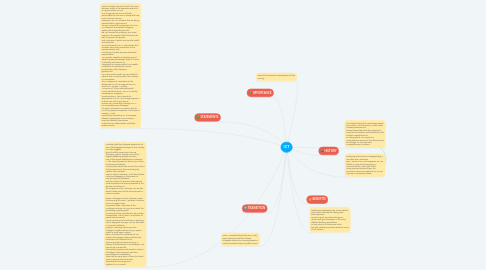ICT
by Ranz Anthony Odelmo

1. Used for the economic development of the country
2. There is a blank canvass in front of us now because, really, in the Executive Branch of our government, no one is in charge and no one is centrally accountable for how much money and how much resources we are throwing in for ICT solutions that are being implemented in government. No one oversees the integration of a true ICT blueprint to transform Philippine systems we are building so that we can harness the economic and social impact on the quality of life of Filipinos as well as improve the quality and outcomes of public services like health and education. We look forward to an ICT framework that provides clear policy orientation in the implementation and monitoring of public-private partnership opportunities. As a country capable of developing and absorbing new knowledge, there is a need to develop and execute an integrated ICT program which can enable innovations to improve the overall productivity of the Philippine government. We in the private sector are committed to interact and co-evolve within the country’s ICT ecosystem. The Management Association of the Philippines (MAP) has organized an ICT Forum on August 6, Monday, 1:30-5:00 PM at the InterContinental Manila with the theme: “DICT: Is it Really Necessary for Philippine Transformation?” (DICT stands for Department of ICT). I am inviting everyone to this forum which will discuss how we can successfully leverage ICT in our competitiveness strategies. We want enrolment in innovation and for ICT to be present everywhere in all areas of society — most importantly, harnessing ICT to empower citizens to participate more actively in social and political discussions so that we can obtain better and faster public services.
3. Consider that the Philippine government is one of the biggest employers in this country, if not the biggest, given that the Government Service Insurance System maintains one of the largest databases globally and also one of the largest databases of customers — the Filipino people of almost 100 million. Its network of partners in the private sector also account for millions of businesses since the Social Security System also maintains over 20 million members. What about those millions of taxpayers in the Bureau of Internal Revenue database and the millions of local and international trade transactions that are processed at the Bureau of Customs or the Philippine Ports Authority? Yes, we also want to keep count of the tourist arrivals in Puerto Princesa, whose Underground River has been voted to be among the New 7 Wonders of Nature. One can imagine how to process those collections at the Underground River. Oh yes, what about the processing, recording and monitoring of the Conditional Cash Transfer transactions? Aren’t those in the billions of pesos that we want to ensure accuracy and timeliness in reporting use of taxpayers’ money? And we also want a universal healthcare program, meaning capturing in the Philippine Health Insurance Corp. system even the most basic medical data. What about the database of our millions of overseas Filipino workers who have been the lifeblood of our economy as they continue to bring in billions of dollars worth of remittances? And how do we monitor the thousands of government projects in terms of budget, actual expenses and their percentages of completion? There are so many more of these functional areas in government where the development of and general uptake of ICT is critical.
4. SONA, recently delivered by our P-Noy was a welcome relief that indeed Philippine reforms are moving forward in various functional areas of public service.
5. IMPORTANCE
6. TRANSITION
7. STATEMENTS
8. The Global Information Technology Report 2012 of the World Economic Forum raises constant awareness on several factors that drive the capacity of countries to transform and benefit from the multiple impacts that ICT can bring about. The report is a comprehensive survey on the determinants to leverage ICT for increased competitiveness of nations.
9. Philippine performance is disappointing — we rated # 86, Indonesia #80, Vietnam # 83, and Singapore #2. Our efforts in using and promoting ICT remained timid. In the light of the many reported shortcomings, the economic and social impact of ICT on our country is necessarily limited.
10. healthcare practitioners can access patient information instantly like taking one’s blood pressure can be as quick as just touching your iPhone with your forefinger or the many different banking applications on your desk or e-commerce which brought instantaneous businesses for many of our citizens.
11. BENEFITS
12. HISTORY


